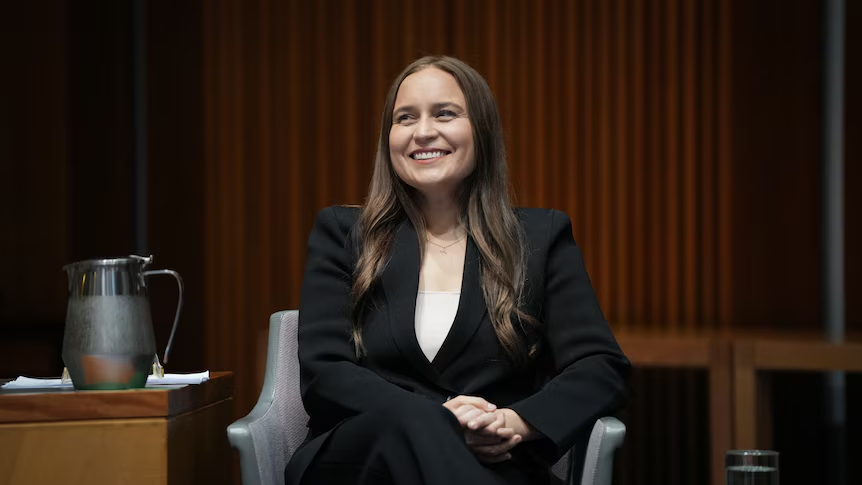FEDERAL GOVERNMENT RULES OUT CHANGING COPYRIGHT LAW TO GIVE AI COMPANIES FREE REIN

“The government has definitively ruled out introducing a copyright exemption for artificial intelligence companies training their models on Australian creative works.
Such a carve-out has been fiercely rejected by the creative sector, after it was floated in a Productivity Commission report.”.
Labor has rejected calls from parts of the tech sector to change copyright laws to give developers free rein to train artificial intelligence models on creative works, after the proposition was met with anger and disbelief from artists.
A copyright exemption for AI companies was floated by the government’s Productivity Commission in August, sparking alarm throughout the creative sector, which warned it would give a free pass to tech giants to continue using work without permission.
The government’s copyright and AI reference group is meeting this week to examine whether the current laws are fit for purpose in the age of artificial intelligence, but Attorney-General Michelle Rowland ruled out any such changes on Sunday.
Australian singer-songwriter Holly Rankin, who performs under the stage name Jack River, said the decision was “incredibly significant”.
“It means the government is saying creatives and artists should be paid for their work and it should be licensed correctly in the age of AI,” she said after an address at Parliament House on Monday.
“For it to even be a question was a shock for us.”
The Productivity Commission’s interim report into harnessing data and digital technology estimated that AI could deliver a $116 billion boost to the economy over a decade.
In the days after it was released, Treasurer Jim Chalmers and Industry and Science Minister Tim Ayres both said the government had “no plans” to introduce an exemption but stopped short of categorically rejecting it.
Now the government has vowed it will not water down copyright protections when it comes to artificial intelligence.
“There is a body of work to do around what the copyright environment looks like in the AI world, but we are making it very clear that we will not be entertaining a text and data mining exception,” Ms Rowland told the ABC’s AM on Monday.
“And this is fundamental to their right as people who are generating works to ensure that they are fairly remunerated for that and that there are fair terms of use.”
Calls for AI transparency standards
Ms Rankin said there was still more work to do, calling specifically for the introduction of transparency standards for artificial intelligence companies so artists could negotiate their own terms of use.
“If we don’t have attribution and transparency regulations for these corporations, then how can you know where and how your content’s being used anyway and how can you get fairly paid for it,” she said.
“These are purportedly the most intelligent people in the world, they should be able to design royalty back ends in their platforms. They should be able to track content in their platforms. Solve the problem.”
James Dickinson, chief executive of Screenrights, which provides licensing services for film, television and radio, also welcomed the government’s clarity after calls from the creative sector for the government to make a “definitive statement” on the proposed exemption.
He said a “clear signal for the tech sector that this is the end of the road” was needed so negotiations over licensing arrangements could start in earnest.
Annabelle Herd, chief executive of ARIA, said there had been an ongoing conversation about the proposed exemption for months, and it was great that the government “has taken a stand on this issue”.
“We know that around the world, major companies have been using copyrighted works without permission, without payment, to train massive AI systems … and they’re retroactively seeking permission to do that,” she said.
“There is no evidence to show that it would be difficult for these companies to approach rights holders and licence that work … so it’s a bit of a try-on.”
Report sought feedback on proposed carve-out
The issue of a so-called text and data mining (TDM) exemption hit headlines in July, after Atlassian co-founder Scott Farquhar used an address at the National Press Club to urge the attorney-general to consider it.
“We are in a perverse situation where copyright holders aren’t seeing any more money, but we also don’t see the economic upside of training and hosting models in Australia,” he said.
“Fixing this one thing could unlock billions of dollars of foreign investment into Australia.”
The following month, the government’s Productivity Commission questioned whether there was a case for such an exemption, noting that they exist in other comparable countries, and flagged that they would seek feedback on the likely impacts.
“It should also be noted that a TDM exception would not be a ‘blank cheque’ for all copyrighted materials to be used as inputs into all AI models,” the report read.
“The use must also be considered ‘fair’ in the circumstances — this requirement would act as a check on copyrighted works being used unfairly, preserving the integrity of the copyright holder’s legal and commercial interests in the work.”
At the time, Opposition Leader Sussan Ley accused the government of being “wishy washy” in its language.
“It is not appropriate for big tech to steal the work of Australian artists, musicians, creators, news media, journalism, and use it for their own ends without paying for it,” she said.
“We have to protect content creators, and I don’t see that.”
Information take from ABC.Net : https://www.abc.net.au/news/2025-10-27/labor-rules-out-ai-training-copyright-exceptions/105935740
#Opposition #copyright #law